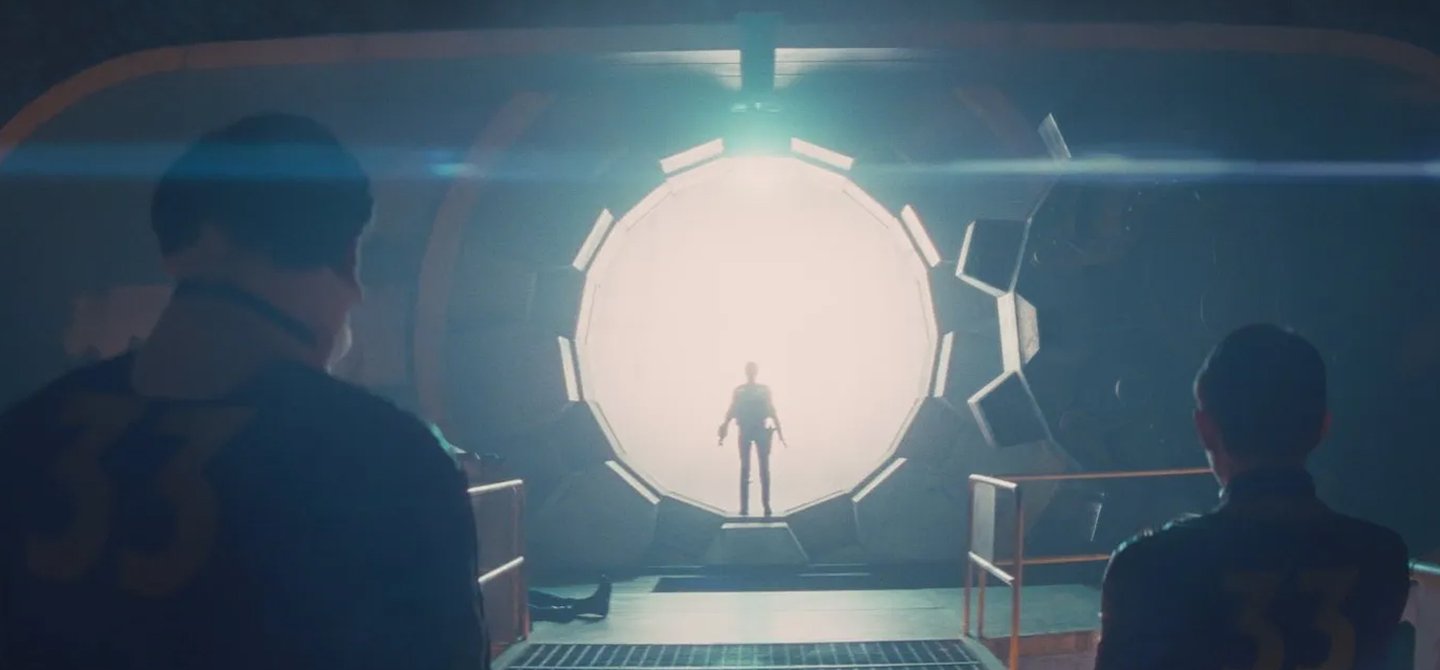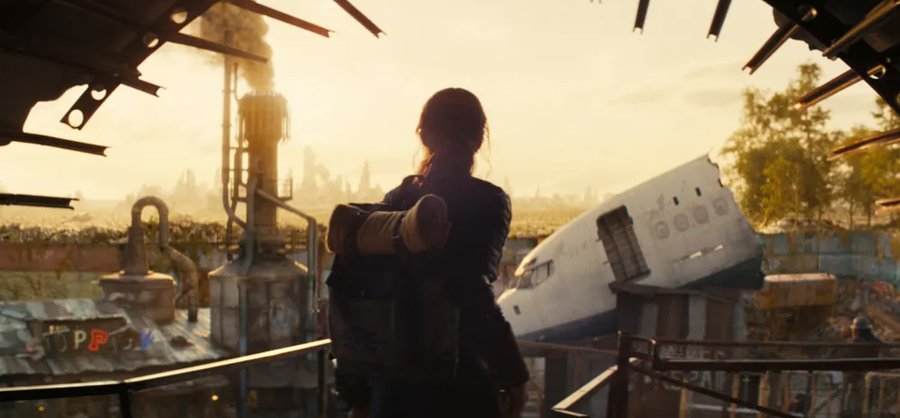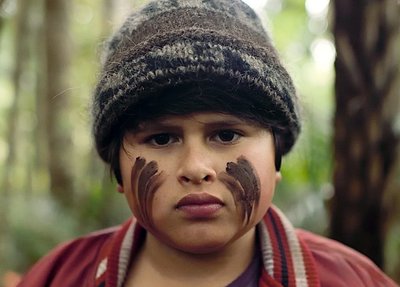
Fallout
Caitlin on April 18, 2024
What do you do with a meaty content warning like the one for the popular series, Fallout?
Prime Video has rated the series “16” with a note for graphic violence, cruelty, sex scenes, suicide, suicide themes, drug use, violence, content that may disturb, offensive language, nudity, and sexual themes – and breathe!
That is a lot to unpack before pressing play. Here at Te Mana Whakaatu we want to make your life a bit easier by doing the research for you.
Who is a parent of a gamer… but not a gamer themselves? My gamer-knowledge sits in the extremely basic realm and is mostly centred around the Sims universe. Talking with gamers about what they play, how it makes them feel and what goes on can be hard to navigate. But Fallout the game and Fallout the Prime Video series provide opportunities for these healthy discussions. Series that have been influenced by or are based on popular games such as Fallout and The Last of Us provide an easy way to have those conversations and helps us struggling parents understand what goes on in video games.
What does a “16” rating mean on a streaming service?
Fallout been self-rated by Amazon (Prime Video) as 16, which means that this content is not for children. While this is still an unrestricted rating (because it was self-rated by a streaming platform), it’s not the same as an M and we strongly recommend that parents pay attention to the age rating. It indicates that a level of maturity is needed to safely engage with this content. For more information about streaming services and self-rating check out our Streaming content page on our website.

What’s Fallout about?
Before watching anything, we encourage viewers to look at the rating and content warning as this is your first hint on what the challenging stuff will be within the film, series, or video games. This also gives you baseline information on whether the content will be right for you and your whānau based on your personal preferences and no-go areas. Check out our content break down in Find-A-Rating for the full season of Fallout.
Challenging content and conversation starters
Whether you are watching with your whānau or separately, here are some easy ways to talk about the themes and challenging content in Fallout. The following contains descriptions of some of the scenes from the series so that you can make informed choice, but there are no major plot spoilers.

Cannibalism
A ghoul cuts into another dead ghoul and removes its teeth with the intention of eating it. The ghoul then forces another to continue cutting slabs of meat off the dead ghoul’s body, and refers to the meat as “ass-jerky”. In a later scene there is a close up of the slabs of meat hanging off a bag.
- Is it common to see different forms of cannibalism in video games?
- What games have you played that have included this?
- How is cannibalism usually portrayed? Funny, scary, graphic etc.
TIP: Talking about what they see is a great way to help them think critically about what they are viewing.
Suicide
A character takes a cyanide pill off-screen, knowing that it meant they would eventually pass away and “get it over with”. Dead bodies are shown next to pills and/or weapons implying that they have died by suicide, facing their impending doom rather than die from the nuclear attacks.
- Is there a difference between self-sacrifice and suicide, and why?
- Are suicide and mental health themes treated differently in video games compared with film and series, and why?
- Can video games be a platform for raising awareness about suicide prevention and mental health issues?
TIP: Always take it seriously if your child is upset by something they have seen. Even though what they have seen may be fictional – the impact is real.
Nudity, sex scenes and sexual references
A character implies that she has been intimate with a cousin but does not go into detail about it other than calling it “cousin stuff”. Another character accuses someone of “f*cking” his chickens. There are other sexual jokes and awkward sexual conversations. A character asks another if they want to have sex, they seem confused and respond with “you mean use my cock?” They then continue to talk about sex in a very naïve and misinformed way. In another episode two characters have sex but the only nudity we see is a naked male bottom.
- Do you think video games reinforce stereotypes more or less than films and series? How?
- What do you think is important in a healthy relationship?
- Do the way characters look and act in video games reflect what you see in the real world: at school, at home and in the community?
TIP: Be prepared to talk about the topic you’re raising. For example, about how sex and relationships are depicted in media and what respectful relationships and consent looks like. For more information check out our How to talk with young people about porn resource
Graphic violence and cruelty
Character body parts are crushed or blown up. Severed limbs and graphic injuries are shown in detail. There’s a lot of hand-to-hand combat and gun violence, including exploding bullets.
- Thinking of typical violent games like Fallout do you think there are better ways of handling conflict?
- Are you mindful about who is in the room before you press play on violent content?
- Is the violence in games similar to what comes up on your social media feeds and #FYP?
TIP: Talk to them about the importance of being aware of who is around them before they view something that might be scary or offensive to younger audiences.
Drug use
Characters are mostly shown consuming unknown substances. They often use inhaler-like devices. A drug called "Jet" from the games is used multiple times throughout the show. In one scene, unidentified white powder is licked by a character.
- Are drugs often unidentified in video games?
- Do you think video games can glamorise and promote drug use?
TIP: Gently approach discussion about drugs, rather than being ready to judge or criticise so that your rangatahi feel safe discussing this with you.
Mātaki tahi, kōrero tahi
Watch together, talk together
Here at the Office we’re always looking at opportunities to know your rating but also to watch together and talk together about the tough stuff. Be sure to check the rating before pressing play for you and your whānau.
Further reading
Fallout (season one) featured decision
Keeping it safe in the gaming space (blog)
Why parental controls are your video on-demand life hack (blog)
Why are ratings and content warnings important for me and my whānau? (blog)
Subscribe to our blog
Stay up to date with the Classification Office blog.


